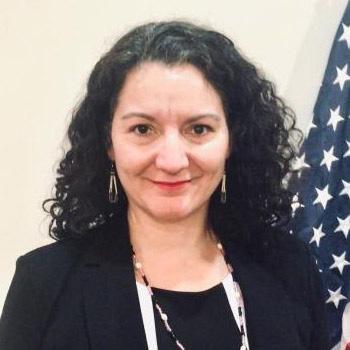S U S A N A G L UKARK NUNAVUT’S FIRST EVER JUNO-AWARD-WINNING INUK SINGER AND SONGWRITER
W E NEED TO BE T TE R U N D E R S TA N D O U R T R A U MA Susan Aglukark is Nunavut’s first ever Juno-Award-winning Inuk singer and songwriter. But she is also a victim of abuse. In 2018, she appeared before the National Inquiry into Missing and Murdered Indigenous Women and Girls to name the man who assaulted her in her hometown of Rankin Inlet when she was eight years old. On the final day of the Inquiry’s hearings, Ms. Aglukark broke into sobs saying, “Norman Ford, you didn’t win. Now the community knows what you did.” Mr. Ford was sentenced to 15 months in jail for assaulting Ms. Aglukark and other victims in the 1980s. But Ms. Aglukark said she received a life sentence as a result of the abuse—as well as the haunting memories. She provided a video played during the International Summit of the Americas on Violence Against Indigenous Women featuring her recently recorded song, Forgiveness.
A n d s h e d el i vered this statement: I'm going to talk very, very briefly, about one of the major hiccups and turning points in my healing journey. I have been very fortunate that my career has also become my healer, so there have been these parallel journeys over the course of my career. I hit a major wall partway through when I came to understand that my greatest challenge was overcoming emotional fear. …. When I hit this wall, there was not necessarily this tangible thing I could do to work through it like I would with writing, or with art, or with singing. It was this hidden piece inside of me that I was in the grips of, caused by trauma … understanding it was a big part and big step towards addressing it. And then I've been slowly peeling back the grips of this institutionalized fear. I was kind of walking through the motions as people would expect me to versus really truly living my life. Emotional fear, afraid to take risks, to take chances, to get better, because we don’t know what the other side looks like. I think we need to spend a lot more time understanding the effects, emotionally, of trauma on all of us. We know the physical trauma. We know the generational trauma. But what does each one carry in terms of emotional trauma. And I think we know best, so we collect that information. We write the programs, we share that information, because we know how it affects us individually and collectively.
11
KCI-NIWESQ • NWAC








